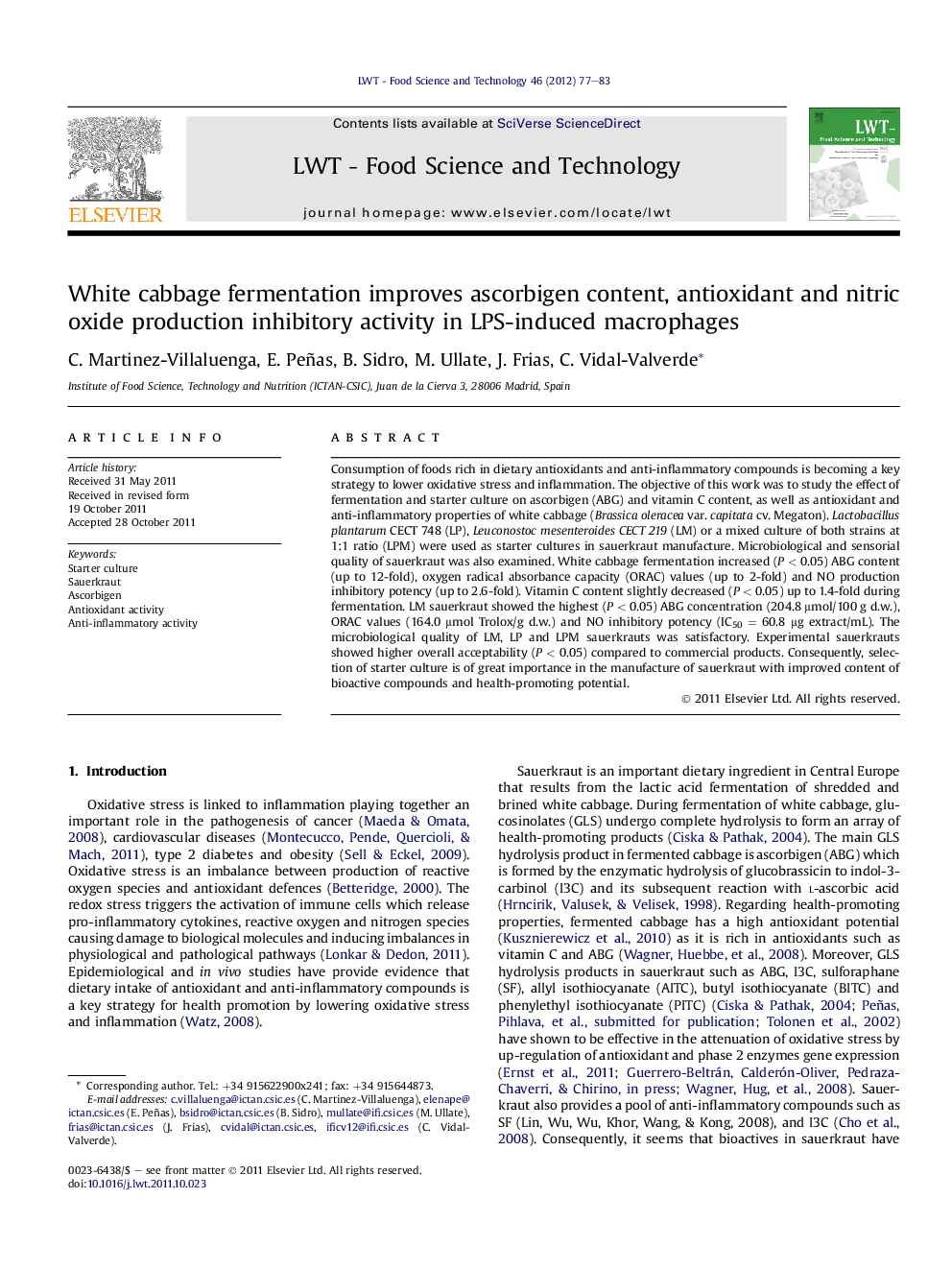| Article ID | Journal | Published Year | Pages | File Type |
|---|---|---|---|---|
| 6405351 | LWT - Food Science and Technology | 2012 | 7 Pages |
Consumption of foods rich in dietary antioxidants and anti-inflammatory compounds is becoming a key strategy to lower oxidative stress and inflammation. The objective of this work was to study the effect of fermentation and starter culture on ascorbigen (ABG) and vitamin C content, as well as antioxidant and anti-inflammatory properties of white cabbage (Brassica oleracea var. capitata cv. Megaton). Lactobacillus plantarum CECT 748 (LP), Leuconostoc mesenteroides CECT 219 (LM) or a mixed culture of both strains at 1:1 ratio (LPM) were used as starter cultures in sauerkraut manufacture. Microbiological and sensorial quality of sauerkraut was also examined. White cabbage fermentation increased (P < 0.05) ABG content (up to 12-fold), oxygen radical absorbance capacity (ORAC) values (up to 2-fold) and NO production inhibitory potency (up to 2.6-fold). Vitamin C content slightly decreased (P < 0.05) up to 1.4-fold during fermentation. LM sauerkraut showed the highest (P < 0.05) ABG concentration (204.8 μmol/100 g d.w.), ORAC values (164.0 μmol Trolox/g d.w.) and NO inhibitory potency (IC50 = 60.8 μg extract/mL). The microbiological quality of LM, LP and LPM sauerkrauts was satisfactory. Experimental sauerkrauts showed higher overall acceptability (P < 0.05) compared to commercial products. Consequently, selection of starter culture is of great importance in the manufacture of sauerkraut with improved content of bioactive compounds and health-promoting potential.
⺠Effect of cabbage fermentation on ABG, ORAC and anti-inflammatory activity was studied. ⺠L. plantarum (LP), L. mesenteroides (LM) or co-culture (LPM) were used as starters. ⺠Fermentation increased ABG content, ORAC and NO inhibitory activity of cabbage. ⺠Cabbage fermentation by LM improved ABG content, ORAC and anti-inflammatory activity. ⺠Data suggest the potential of sauerkraut to attenuate oxidative stress and inflammation.
